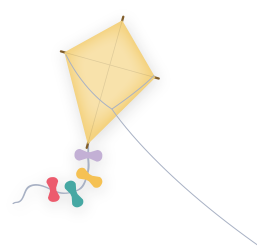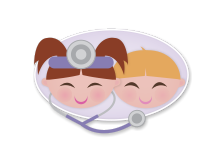










175 Nate Whipple Highway Suite 102 Cumberland RI 02864 • 401.334.KIDS Home | About Us | Our Staff | Services | Wellness | Illness | Parents
Like us on facebook.

PREVENTION OF ILLNESS IN SCHOOL:
With the start of school your child may start to develop more illness due to the SPREAD OF GERMS and close contact with other children. It is important to teach your child good HAND WASHING skills (before and after meals, immediately after gets home from school, etc..) that will prevent illness. Using soap and water with ADEQUATE SCRUBBING (singing “Happy Birthday” twice) and use of alcohol based antibacterial cleansers are recommended. Other techniques such as “COUGHING INTO YOUR ELBOW” can also help stop the spread of germs in school.
LICE:
If your child develops lice you will notice increased ITCHING of the scalp. On closer inspection you may see live lice in your child’s hair and also nits which appear as white small eggs attached to the hair shaft (difficult to shake off). If your child develops lice the first line treatment is a PEDICULOCIDE (either over the counter or prescription) that is applied to the scalp. After treatment , use of a NIT COMB to remove any dead lice or nits is important for eradication of infestation. It is also important to check all household members and close contacts for signs of lice so they can receive treatment. All clothing and bedding items used within 2 days prior to discovery of infection should be LAUNDERED IN HOT WATER. Items that cannot be washed should be dry cleaned or stored in plastic bags for 2 weeks. It is important NOT TO SHARE BRUSHES, hair items, hats and towels with a person who has been infested with lice. Remember to educate your children not to share these items with other students in school on the bus or in the classroom for prevention of lice. Treatment for lice should be REPEATED 7-9 DAYS AFTER THE INITIAL TREATMENT. If your child has lice and you need help with options for treatment please contact your pediatrician.
SCHOOL PROBLEMS:
If your child is struggling in school it can be a source of stress on the family and particularly for your child. SPEAKING WITH THE TEACHERS is the first step in being an advocate for your child to see if any extra help can be made available. There are times when teachers may have SPECIFIC CONCERNS regarding learning differences or problems with attention in class. If you have questions regarding these issues, please contact your pediatrician. If your child has signs of ATTENTION DEFICIT DISORDER your pediatrician can recommend additional testing and evaluations (see below PDF with Vanderbilt Questionnaires for ADHD evaluation). Through a team approach involving parents, teachers, the school system, your pediatrician, counselors and sometimes specialists we can help your child achieve their highest potential.
The information presented in this section is not intended to take the place of your personal physician’s advice or diagnose, treat, cure or prevent any disease. Information is intended for your general knowledge only














